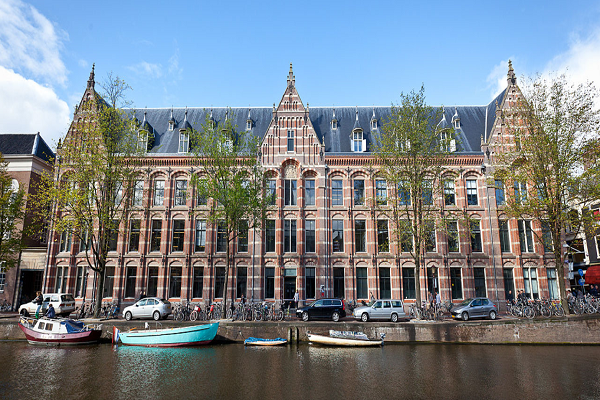University of Amsterdam: Veni grants for eight UvA researchers
Eight promising young researchers from the UvA have received Veni grants of up to 280,000 euros from the Dutch Research Council (NWO). The researchers are from the Social Sciences and Humanities, and Applied and Engineering Sciences domains, and will be able to further develop their own research ideas over the next three years.
These awards form the second and final section of the Veni round 2021. The first section of the awards – for the Exact and Natural Sciences domain – was announced by the NWO in December 2021.
The UvA recipients
Dr Anouk van Dijk (Psychology Research Institute): Resolving treatment resistance in youth with aggressive behavior problems – A virtual reality approach
Over 45% of young people with aggressive behaviour problems stop treatment against the advice of their therapist. What can therapists do to resolve treatment resistance in these young people? Van Dijk uses interactive virtual reality technology to investigate how therapist behaviours may cause resistance and provides a training environment for therapists to practice resolving resistance.
Dr Klaas Eller (Amsterdam Centre for Transformative Private Law): The missing link: How to make global supply chains more sustainable
A wave of recent regulations at the national, European and international level requires companies to guarantee sustainability and human rights in global supply chains. Despite these efforts, illegality and rights violations persist. Elles provides the missing link in this project. It shows the roots of current loopholes and how to prevent them.
Dr Willemijn Krebbekx (Amsterdam Institute for Social Science Research): Traveling Sex Education
Sex education programmes originating in the Netherlands travel to various countries in the Global South. How do these sex-ed interventions interfere with other knowledge and educational practices? And what new constellations of sexuality emerge along the way? Krebbekx traces the itineraries of these programmes in Uganda and Bangladesh.
Dr Marloes Oomen (Institute for Logic, Language and Computation): Cat – there. Soap – where? Abstract use of space in Sign Language of the Netherlands
In sign language conversations, people, animals, and things often get associated with seemingly random locations in space: sign ‘cat’ and point to the right, then point again to refer to that same cat. Oomen identifies in this research the unwritten rules signers apply when picking out spatial locations to represent such referents.
Dr Katrina Perehudoff (Law Centre for Health & Life): Global Access to Medicines through EU Law & Policy
The European Union (EU) plays a central role in regulating Europe’s medicines supply. New evidence suggests these internal actions also impact on medicines access outside of Europe, which can have important consequences for political and economic stability, and human health and wellbeing. Perehudoff investigates the EU’s legal and ethical responsibilities towards medicines access in low- and middle-income countries, and studies how the EU’s actions can and do impact on access to medicines in these countries. Her project proposes a legal impact model that can guide the EU’s future action towards pharmaceuticals in line with its principles and values.
Dr Alexander Savi (Psychology Research Institute): The developmental dynamics of intelligence: Cognitive networks of facts and skills
Intelligence predicts success in many areas, but how do you influence it? Savi constructs a new theory that describes intelligence as a growing network of facts and skills, revealing the role of development and education. The theory explains and predicts developmental patterns at the individual and population levels. These patterns are tested against large-scale longitudinal educational data.
Dr Lana Sirri (Amsterdam Institute for Social Science Research): Muslim Women on the Front Lines of Social and Political Change: A Case Study of the Gulf Cooperation Council Countries
Are Muslim women in the Gulf just interested in the right to drive cars? Or do they also want to sit in the driving seat politically and steer their societies towards gender equality and democratisation? By looking beyond the clichés, Sirri examines women’s life experiences in the Gulf Cooperation Council countries to reveal the practical tools employed in the day-to-day struggles of people. By identifying ‘home-grown’ strategies used to combat patriarchy and religious extremism, this research has the potential to empower Muslim women everywhere and may help to improve counter-radicalization policies in Europe.
Dr Bob Pirok (Van ‘t Hoff Institute for Molecular Sciences): Unleashing the Potential of Separation Technology for Achieving Innovation in Research and Society (UPSTAIRS)
In UPSTAIRS, methods and open-access algorithms will be created, to facilitate the use of powerful contemporary separation technology for other (industrial) disciplines. By automating the selection and simultaneous optimisation of a large number of parameters, contemporary methods can be drastically improved. This will help society solve pressing problems and will help us better understand materials, art, pharmaceuticals, environment, and other matrices.

